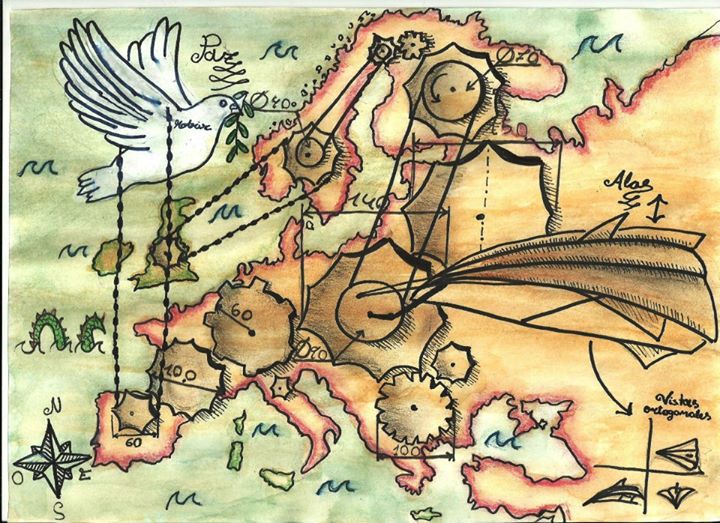Introduction
Precise definitions of globalization varies, but in general, we can recognize some characteristics of globalization:
- Close cooperation among states so as to maximize their own influence and interests
- Encourage free movement of people and goods
- More and more issues are of regional or even of global scale (e.g. climate change, financial crisis); close cooperation among states are therefore essential
- Standardization: other regions have to follow the same norms
European integration is closely connected to globalization. This series will present European integration from different perspectives (economically, socially, politically, etc) with the aim of showing its relation with globalization.
Birth of the European Union
The European Union (EU) itself is the clearest example of characteristic (1). Its predecessor, the European Coal and Steel Community, was founded against the backdrop of post-WWII. It was a time when European states, which had yet to recover from the war, were facing the threat of the Communist Bloc from the East. In order to speed up economic recovery and resist the growing influence of the Soviet Union effectively, political leaders of Western Europe decided to form a partnership for closer cooperation.
Building the foundation of cooperation – Peace
Cooperation must be built upon peace which in turn should be stable and long lasting; otherwise, there would be no room for sustainable development. “How to make war not only unthinkable, but materially impossible?” thus became the central question for postwar European leaders to deal with. Jean Monnet, one of the founding fathers of the EU, was at that time a political and economic adviser for the French government. His idea was to put coal and steel, two most vital materials for war preparation, of Germany and France together under the management of a supranational organization named the High Authority. That way, launching war against each other would be extremely difficult, if not impossible.
Monnet’s suggestion was welcomed by many. The French foreign minister, Robert Schumann, announced it in a speech on 9th May, 1950. A year later, the European Coal and Steel Community (ECSC) was founded, whose members included France, West Germany, Belgium, the Netherlands, Luxembourg and Italy. The ECSC not only helped these countries form regular dialogues for better communication and new means of solving conflict, but also brought them economic benefits because of a bigger and more open market of coal and steel.
Read more
- The History of the European Union
- Speech by Vincent Piket, Head of the European Union Office to Hong Kong and Macau, on the occasion of the UN International Day of Peace, 20 September 2014
- Lesson Plan_From Conflict to Close Partnership_The European Union
- Worksheet 1_From Conflict to Close Partnership_The European Union
- Worksheet 2_From Conflict to Close Partnership_The European Union
Cover photo source: Ana Fanlo Vicente/ Council of the European Union

